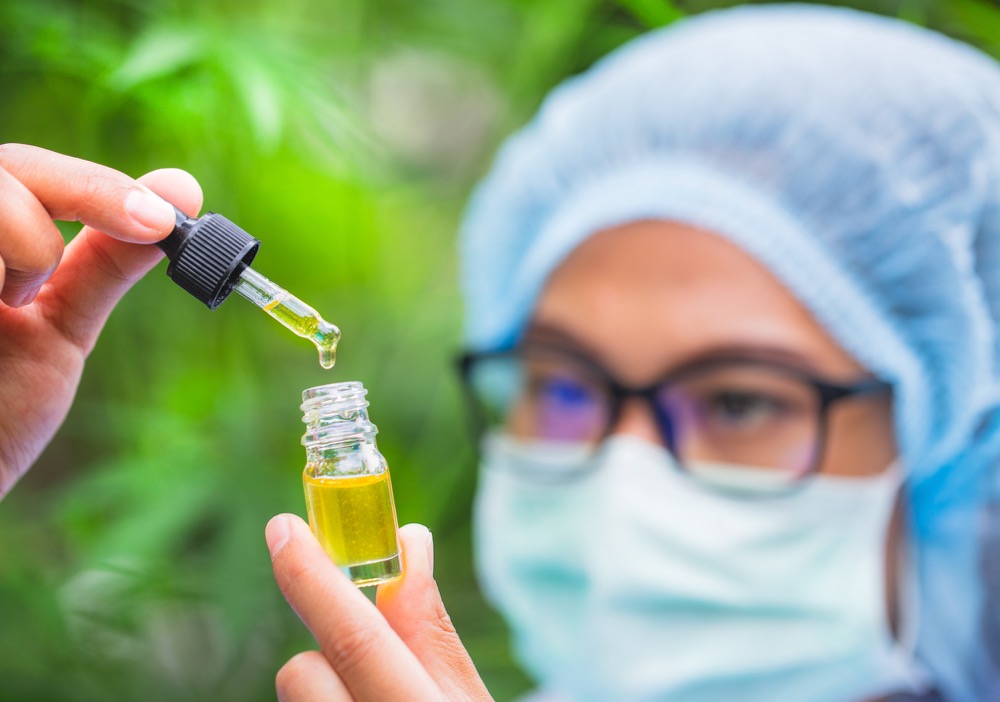CBD Oil Industry and Industrial Hemp

Thanks to the 2018 Farm Bill, hemp is as an industrial crop once again. As part of this act, hemp has been removed from the Schedule I classification of illegal drugs if it contains less than .03% THC. This is great news for the CDB oil industry in Michigan, and for those into or considering getting into industrial hemp.
Do you need help getting into Michigan’s CBD oil or industrial hemp industry? Request a consultation now.
The legalization of the growth of industrial hemp as a crop is a boon for many reasons.
Now, farmers can grow hemp to be processed into paper, clothing, fuel oil, and more.
One of the key uses many people are looking to hemp to provide is the production of CBD oil, which is an incredibly popular industry due to its medical use.
As well as having health benefits for humans, CBD oil can also be used on animals like dogs, cats, and horses.
Most people think that hemp and the plant used for marijuana are the same.
The fact is that they’re the same genus of a different species of plant.
Before we can talk about how the legalization of hemp is going to benefit the CBD industry, we need to take a look at the history of hemp and its uses.
Since it has been illegal for so long, many of these reasons have been forgotten.
The History of Hemp
The use of hemp dates back to 8000 BCE in Asian regions that are now known as China and Taiwan.
Hemp cords were used in pottery and hemp seed and oil was used in food.
This means that hemp was probably one of the first crops.
Following its cultivation as a key food crop, hemp began being used in clothing, ropes, shoes, and paper.
In the latter part of the first millennium, Vikings were responsible for using hemp and spreading it to Iceland.
By 1533, hemp was such a necessary crop that King Henry VIII began to fine farmers who didn’t raise hemp.
By 1616, the Jamestown colony was growing hemp to make rope, sails, and clothing.
Again, taking a page from Henry VIII’s book, American farmers were required by law to grow hemp in the 1700s.
Even the Declaration of Independence was written on hemp paper.
The good times, however, weren’t to last.
For various reasons, in 1937 the Marijuana Tax Act placed a tax on all cannabis products, including hemp, which heavily discouraged the production of it.
Although the Marijuana Tax Act was briefly set aside for World War Two, in 1970, the Controlled Substances Act classified hemp as an illegal Schedule I drug.
While hemp has slowly been gaining acceptance and legality sense, it wasn’t completely removed from Schedule I classification until the signing of the Hemp Farming Act of 2018, which was part of the US Farm Bill.
How the Farm Bill Benefits the CBD Industry
Cannabidiol, also known as CBD, is one of the hottest commodities on the market right now.
Its purported benefits range anywhere from treating seizures, pain, and inflammation, to a viable treatment for anxiety, depression, and even acne.
This is one of the many reasons the CBD oil industry is booming.
Because hemp was previously classified as a Schedule I substance it remained illegal to cultivate hemp.
Therefore, the shipping of CBD products across state lines was also illegal.
Now, hemp products, and by extension CBD, is available to everyone.
CBD is derived from the buds of hemp plants which is why the two are often compared.
Despite being derived from hemp plants, CBD oil has a range of differences compared to hemp seed oil.
Farmers stand to be the most affected group.
U.S. trade tariffs with China have slowed the importation of staple crops from the United States such as wheat, corn, and soybeans.
The arid climate and drought the Midwest has been experiencing have also affected the yield of these crops.
Many farmers are now devoting acres previously allotted to other crops to the cultivation of hemp.
Hemp requires less water than corn and is more easily grown.
The Future of CBD
Before the passage of the Farm Bill, predictions were that by 2022, the CBD industry would be worth $22 billion.
That figure is certain to rise given the implications of the Farm Bill.
Nationwide chains such as Krogers, Walgreens, and CVS Pharmacy are selling patches, creams, and sprays containing CBD.
The beauty industry is also seeing a boost in CBD products.
The vaping industry, too, is benefitting from the passage of the Farm Bill.
If you’d like to learn how to successfully get into the industrial hemp business, take yours to the next level, or learn more about building a successful CBD business, our award-winning team can help you.
Do you need help getting into Michigan’s CBD oil or industrial hemp industry? Request a consultation now.
Categories
Cannabis Legal Group Free Consultation
Get in Touch With Michigan's Most Trusted Cannabis Law Firm
We’ve Been Helping Michigan Marijuana Businesses Lay the Groundwork for Long-Term Security and Success for Years, and We Can Help You, Too.
Phone Number:
(248) 301-0626
© Cannabis Legal Group. All rights reserved.

